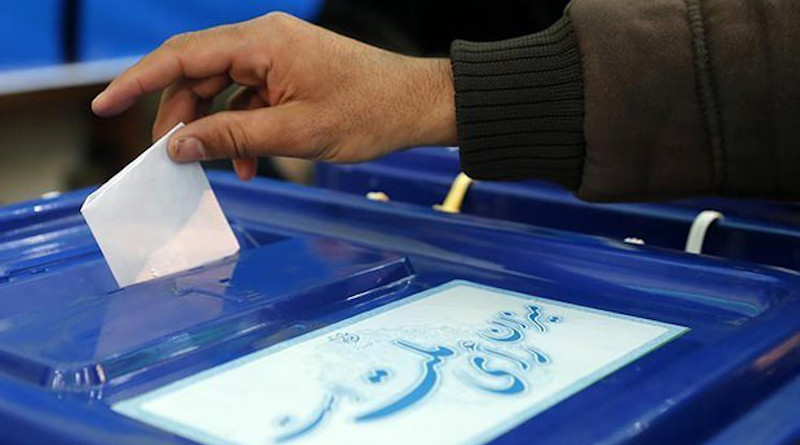Iran will hold snap presidential elections following the tragic death of President Ebrahim Raisi in a helicopter crash. The Interior Ministry has released the final list of six candidates approved by the Guardian Council, a decision that comes at a critical juncture for the country.
Candidates and the political climate
The Guardian Council, which is tasked with screening candidates for elections under the Iranian constitution, announced on June 9 that it had approved six candidates, including four women, from a field of 80.
The approved candidates are:
- Mohamed Baqer Qalibaf – current Speaker of Parliament
- Saeed Jalili – former Chief of the Supreme National Security Council
- Alireza Zakani – current mayor of Tehran
- Amir-Hossein Kajizadeh Hashemi – current Vice President and President of the Martyrs and Veterans Foundation
- Mostafa Pourmohammadi – former Minister of Justice
- Massoud Pezeshkian – Iranian reformist politician. He currently represents the Tabriz, Osk and Azarshahr constituencies in the Iranian parliament. He served as its First Deputy Speaker from May 29, 2016 to May 26, 2020.
Background and Issues of the Election
The election comes amid major challenges both domestically and internationally. Iran is grappling with widespread protests fueled by economic hardship exacerbated by international sanctions, largely imposed by the United States, which have crippled the economy and led to high inflation, unemployment and falling living standards. The economic crisis has sparked protests calling for better governance and economic reforms.
Iran's human rights record is also a significant issue. The government has been accused of severely oppressing ethnic minorities, including Kurds, Arabs, Turks and Baluch, who demand greater autonomy and rights in the country. These groups face systematic discrimination and activists are often subject to severe government repression. The international community has repeatedly condemned Iran's lack of political freedoms and human rights violations.
President Raisi's sudden death added further uncertainty to an already volatile political environment. First Vice President Mohammad Mokbel became acting president, but the power vacuum has intensified domestic political maneuvering. Raisi was a controversial figure known for his hardline stance, and his death has sparked speculation about a potential shift in Iran's domestic and foreign policies.
As Iran prepares for elections on June 28, the campaign period will be crucial for candidates to present their vision for the future. The new government, Iran's 14th since the 1979 Islamic Revolution, will face the daunting task of addressing the country's economic, human rights and international relations problems.
The outcome of the election will determine whether Iran continues on its current path or moves in a different direction. Regardless of who wins, the new president will need to address widespread discontent and work toward stabilizing the country amid internal and external pressures. The international community's response to the new leadership will also play a key role in shaping Iran's future.
Disqualified from Iran's presidential elections
Iranian political heavyweight Ali Larijani suffered another setback in his presidential bid. On June 9, Iran's election review body, the Guardian Council (GC), released a list of approved candidates for the upcoming presidential elections, but excluded Larijani and several other prominent current and former officials, including Mahmoud Ahmadinejad. The rejection is a continuation of the pattern for Larijani, who was also barred from the 2021 elections despite Supreme Leader Ali Khamenei's intervention.
Following his disbarment, Larijani, 66, expressed his dissatisfaction in a post on X, criticizing the Guardian Council for operating with an “opaque structure.” He stressed that previous charges against him had been dismissed by the judiciary and that other public institutions had supported his candidacy. Addressing his supporters, Larijani lamented, “I wanted to pave the way for Iran's national development together with your company, but the esteemed Guardian Council has blocked that path.”
Larijani's political career has changed significantly over the past decade. Initially a conservative politician, he moved to the center during President Hassan Rouhani's term (2013-2021) and aligned more closely with moderates. This transition put him at odds with Iran's hardliners and complicated his political ambitions. His exclusion from the 2021 elections has been speculated to be due to his daughter's dual British-Iranian citizenship, highlighting the political complexity and sectarianism in Iran's electoral process.
The disqualification of Larijani and other prominent figures sparked criticism and controversy. Ali Motahari, a former member of parliament and Larijani's brother-in-law, criticized the Assembly's decision, especially questioning its role in determining candidates' potential political trajectories in continuing Rouhani's line. Abbas Akhundi, a former minister under Rouhani, called Larijani's exclusion “unjust” and called for a meeting with the Assembly to present his case. Similarly, Eshaq Jahangiri, another prominent moderate who was also banned from running, called for clarification and justification for his disqualification.
The next presidential elections, scheduled for June 28, follow the unexpected death of President Ebrahim Raisi in a helicopter crash on May 19. This sudden development has intensified the political situation in Iran, and the Guardian Council's decision reflects broader tensions and power struggles within Iran's political system.
The removal of key moderate and centrist figures such as Larijani and Jahangiri may signal a strategic move by hardliners to consolidate power and influence the direction of the country's political future.
Ali Larijani's disqualification from the upcoming presidential elections highlights the complexity and contentiousness of Iran's political environment. The Guardian Council's opaque decision-making process and the exclusion of prominent moderates raise serious questions about the future trajectory of political representation and governance in Iran. These developments will undoubtedly shape the domestic political debate and broader power structures as the elections approach.
International influence
The outcome of this election could have significant implications for the international community. The new president will inherit the difficult task of navigating Iran's foreign relations, especially with the West. The nuclear deal remains a contentious issue, and the international community will be watching closely to see how the new administration approaches it. A win for the hardliners could further strain relations, while a moderate president might encourage diplomatic negotiations.

